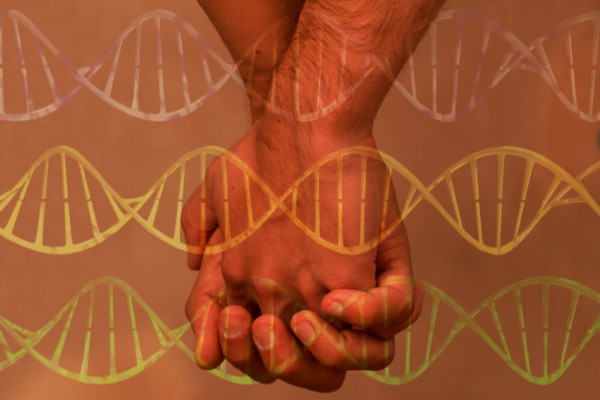More on the "gay Gene"

December 3, 2014
A recent news article in SCIENCE (Servick, K. 2014. 346(6212):902) discusses new support for the "gay gene" hypothesis. In 1993 Dean Hamer, an investigator at NIH, carried out a study in which he identified a stretch of the X chromosome that he believed influenced an individual's predisposition to homosexual orientation. Subsequent studies failed to confirm Hamer's work, and I voiced great skepticism concerning the existence of such a genetic determinant when I discussed behavoral genetics in my book on epigenetics. The report published the other day in SCIENCE states that a new study (by JM Bailey and A Sanders) with a much larger cohort of 409 pairs of brothers in which at least one member was gay, did identify the same region on the X chromosome. The study zeroed in on the Xq28 region of the X chromosome and also another region on chromosome 8.
However, the evidence is shakey at best, and none of the linkages they report rise to the level of statistical significance.
If there is a genetic component to homosexuality it must be highly influenced by environment and by the rest of the individual's genetic makeup, overwise it would have been isolated and identified long ago. The topic is so emotionally charged and so difficult to study that it will require a great of research that hardly seems justified. Our meager and constantly shrinking resources available for behavioral research would be much better spent on mental conditions that are known to have a genetic basis and cry out for workable therapies.
Comments
Submit a Comment
Please be sure to fill in all information. Comments are moderated. Please no link dropping, domains as names; do not spam and do not advertise.

 RSS Feed
RSS Feed
There are currently no comments